Quick Summary: When thinking about developing your mobile app, NDA should naturally be the first thought in your head. The importance of NDA is often underestimated when it comes to protecting your app idea when it is still in the idea or development stages. Here is your go-to guide for understanding the significance of NDA and the intricacies of how it works.
Looking to outsource your mobile app development project but skeptical about your app idea being stolen? Protecting confidential information is of utmost priority when you outsource your mobile app development project.
Over one-third of the U.S workforce is bound by an NDA, as per a study published on SSRN.
So how do I protect my app idea?
By signing an NDA – Non-Disclosure Agreement!
What are Non-Disclosure Agreements?
NDA or Non-Disclosure Agreement, as the name suggests, is a legally binding document that establishes confidentiality between the two parties that sign it. The parties signing the agreement agree that any sensitive/confidential information they obtain from the other party during the project’s tenure shall not be disclosed or made available to any third entity.
What comes under ‘confidential information?
- Business Strategies
- Personal Information about Employees
- Unique App Ideas
- Customer/Supplier Databases
- Various Software
One important aspect of NDA that needs to be understood and is often misunderstood is that signing an NDA does not necessarily prevent your mobile app idea from being stolen. It only prevents the parties who sign the contract from disclosing confidential information about the project to others.
Hence, if a client approaches a mobile app development company with an app idea similar to another client’s app idea, the mobile app development agency can build a mobile app for both clients, provided they don’t use any confidential information stated in the NDA documents.
Why do I need to protect my mobile app idea?
From a mobile app development company’s point of view, they insist clients sign an NDA before signing a contract for any client’s mobile app development project because they need to share sensitive information about their company. This sensitive information, if not protected, could negatively impact their company’s security, reputation, or other key secrets.
On the other hand, most client’s app ideas have key relevance to their business strategy or requirements, such as finance-based companies, companies that are in manufacturing, or any other such niche. Such companies, in particular, need to ensure that their sensitive data is properly managed and handled.
The same is the case with any business planning to introduce a new mobile app with a new concept, utility, or list of features that have never been used before. These companies need the most assurance that their innovative mobile app development ideas would be treated with as much confidentiality as possible.
There are many ways to protect your mobile app idea. You can copyright your mobile app, get a patent or consider trademarking or also look into non-compete agreements. While all these methods effectively protect your mobile app idea, one aspect that is often overlooked but can be instrumental in outsourcing your mobile app development process is – signing an NDA for app development.
Overall, protecting your app idea through NDA helps you –
- Handle sensitive data
- Discuss an idea in detail
- Introduce a new concept
- Include the entire development team
When to Sign an NDA?
NDA is one of the many tools to safeguard your mobile app idea to ensure confidentiality between the two parties involved. It is a standard mobile app development practice and has many uses in many instances.
There are different instances and circumstances where you might need to sign an NDA for app development for a seamless experience.
Here are some of the most prominent places where Non-Disclosure Agreements are very important –

1. Presenting an offer to a potential Investor/Partner
Any business can benefit from taking on a new investor or a business partner to expand their horizons and open up new possibilities for their business. This includes discussions on personal information, business finances, mobile app ideas, potential target audience, and much more. Generally, such presentations and talks require you to fully disclose your business idea so that investors can make informed decisions about whether to invest. Most businesses will seek out multiple investors in order to improve their mobile app development process. Startups generally try fund-raising from venture capital investors to support their finances.
Signing an NDA during these presentations is very important for safeguarding your mobile app ideas and mobile app development strategies from sharks and investors that have enough capital to deploy an app based on your app idea without ever needing you. Hence, NDA helps protect your trade secret in such situations.
2. Entering a Business Deal
NDA isn’t required when working with freelancers or mobile app development agencies. However, if you need to share any confidential information with the outsourcing partner, it is best to get a Non-Disclosure Agreement in place. This way, you can provide all the necessary information and tools for them to truly work efficiently on your mobile app project without having to worry about any malpractices.
3. NDA for Freelancers
One of the positive upsides working with a freelancer is that you can end the contract anytime. You can terminate the freelancer’s contract if you are not happy with their services. However, the downside is also that the freelancer can sell his/her skills to the highest bidder at any time without any contractual obligation of loyalty, unless clearly stated in your agreement. This raises concerns about maintaining confidentiality, as freelancers do not fall under your direct supervision or employment. In such a case, you should bind the freelancer with the right NDA clauses that ensures they cannot reveal your company secrets to your competitors.
4. Company to Company NDA
Many times when a mobile app development project is too big for an individual firm to fulfil with their resources, they rely on their competitors or other mobile app development firms to outsource some of the app development work to them. In such a situation, the outsource partner gets benefited monetarily whilst the company that outsources gets additional help to fulfil their clients project. Now, to ensure that the outsource development partner doesn’t steal the project, or contact the client directly, the primary mobile app development company would ask the outsourcing company to sign an NDA for app development that would prohibit them from doing any such thing.
Why use NDA for Mobile App Development Project?
Why are NDAs important? Non-Disclosure Agreements play a crucial role in your mobile app development outsourcing process. Having an NDA in place helps you protect your app ideas and other intellectual property to a great extent at different mobile app development stages and phases throughout the project completion.
Here are the top reasons you should ask for NDAs –
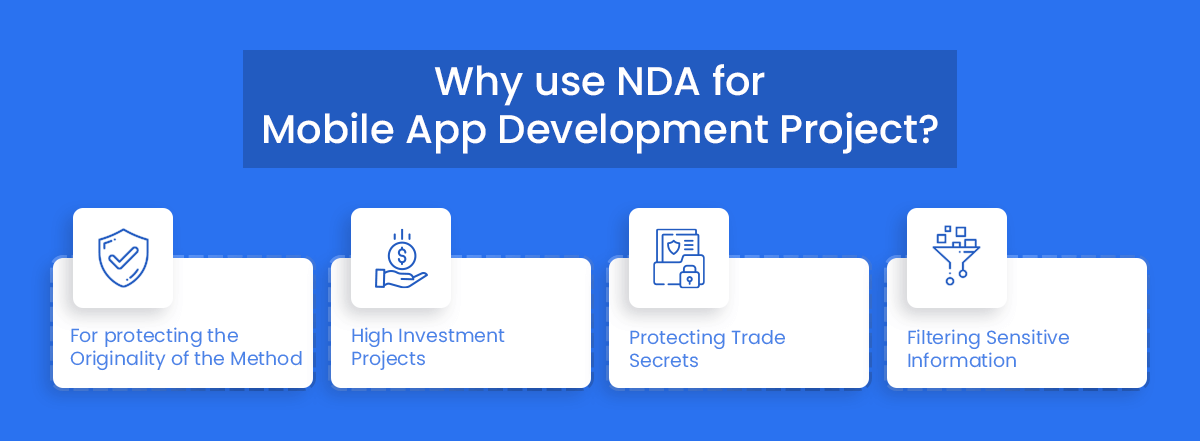
1. For protecting the originality of the method
Ideas in themselves are not something that falls under copyright protection. No one can truly own or have rights over an idea. However, you can still protect your custom methodology or mobile app development process by utilizing an NDA. Hence, if you’re at a stage of discussion with any outsourcing mobile app development company, you should ask for an NDA before discussing your mobile app ideas at all.
2. High Investment Projects
Well, it is as clear as it gets. You don’t want to spend a huge amount on a project just to have your app ideas given away. Hence, when the cost of mobile app development is considerably high, take the responsibility of getting an NDA in place as soon as possible.
3. Protecting Trade Secrets
In any cut-throat competitive market, trade secrets help businesses stay ahead of their competitors. Your trade secret can be a secret ingredient in your restaurant-based business, a specific machine learning algorithm that helps you derive meaningful deductions from your data, and more. Now you don’t want your custom mobile app development partner to give away your key ingredient to any of your competitors. Hence, having an NDA for app development in such situations is a must.
4. Filtering Sensitive Information
If you deal with sensitive information like financial data, healthcare issues, or anything else that should not be accessible to the public, you should consider signing an NDA. An effective NDA can set boundaries and regulate which information can be shared with third parties and which remains confidential.
Types of Non-Disclosure Agreements
Each NDA can be and is usually tailored to match the exact requirements and protect the best interests of both parties involved. However, there are certain types of NDAs that you should know about so you know which NDA to push for in different circumstances –
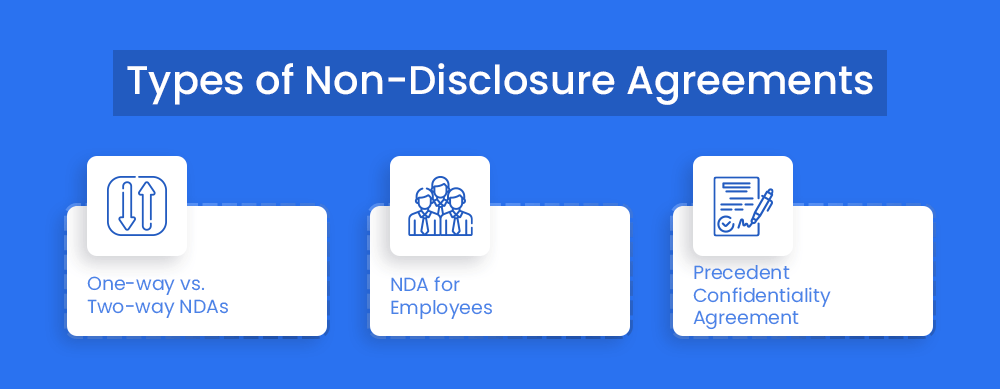
1. One-way vs. Two-way NDAs
One-way NDA is when only one side of the business involved in a project shares their sensitive information, and the other partner agrees to keep it confidential. Two-way NDA or mutual NDA is when both businesses share their sensitive information and ensure that neither will disclose their trade secrets.
2. NDA for Employees
When it comes to potential breaches of confidentiality, current employees and ex-employees are most susceptible to leak such sensitive data. Though employees should be under an implied duty for not sharing trade secrets to harm the business, having it in writing and a form of the contract via NDA is important to specify what exactly is confidential. There should be necessary provisions in place in the Employee-NDA for when an employee leaves your business.
3. Precedent Confidentiality Agreement
A ‘Precedent Confidentiality Agreement’ is generally used for mergers and acquisitions. If a business wants to buy your company, it will ask to look through your assets and books to evaluate your business’s health and financial condition. In such cases, signing an NDA beforehand becomes important to safeguard your trade secrets and sensitive business information if the prospective buyer pulls out of the deal.
How to Write a Standard Non-Disclosure Agreement?
Now that we understand the importance of NDA, there are certain NDA best practices and processes to follow to ensure that your NDA protects your app idea and other resources effectively and thoroughly.
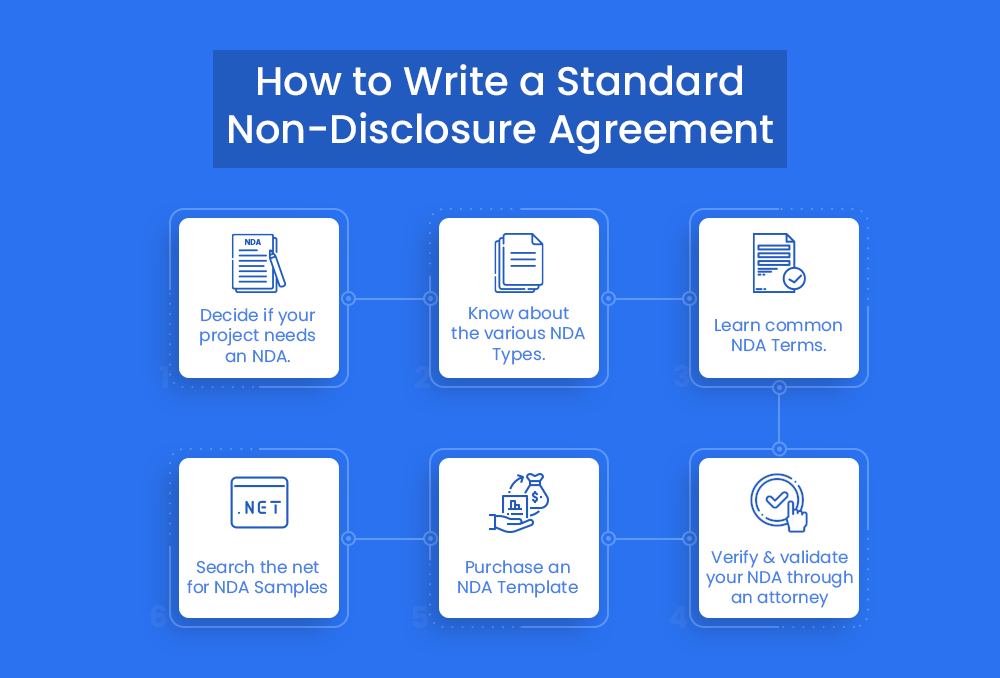
Step 1: Decide if your project needs an NDA.
Do you have a trade secret that can give you a competitive edge in the market? Do you have a futuristic one-of-a-kind app idea that you can’t let your competitors get a whiff about? If not, then you mostly will be fine without an NDA too. However, it is generally advisable to opt for NDA for legal protection of resources and sensitive information.
Step 2: Know about the various NDA Types.
As we discussed above, there are various types of NDA to choose from based on which one suits your business requirements the best. Having a proper understanding of these various types of NDA will help you select the right kind of legal agreement that matches your business objectives the closest.
Quick Summary Table of various NDA Types
| Type of NDA | Description |
|---|---|
| One Way NDA | One partner shares confidential information, and the other promises not to share sensitive information with third-party entities. |
| Two Way NDA | Mutual sharing of sensitive information to protect both companies’ trade secrets. |
| NDA for Employees | NDA signed with employees for the tenure of their work in an organization. In some cases, post-retirement or leaving the job clauses need to be added too. |
| Precedent Confidentiality Agreement | Used during mergers and acquisitions. For safeguarding potential investors from leaking trade secrets if they back down from the deal. |
Step 3: Learn common NDA Terms.
If you can’t learn the lingo, you’ll always feel insecure and uncomfortable. Be it vacationing in a foreign country or when dealing with NDA. Let us understand some commonly used NDA terms –
- Discloser and Recipient – The two NDA parties.
- Statement of Reason – Describes NDA’s purpose.
Step 4: Search the net for NDA Samples
You can look at free NDA samples available on various credible websites like Harvard Business School. Take references from these NDA samples when drafting your NDA.
Step 5: Purchase an NDA Template
If you feel stuck drafting your NDA for app development or are not sure confident in your draft, you can go to credible online legal services that sell NDA templates for your use. After purchasing the sample, replace the placeholder content with your sensitive information, and you are good to go!
Step 6: Verify and validate your NDA through an attorney
Once you’re done drafting/purchasing your NDA, you should run it through a credible attorney to ensure that your NDA is legally binding and has all the right clauses mentioned that are important for your mobile app development project.
Key NDA Clauses – What information to include in your NDA?
NDAs can be of varying types, durations, and terms. However, there are some key clauses related to NDA that you should include in your Non-Disclosure Agreement confidentiality agreement –
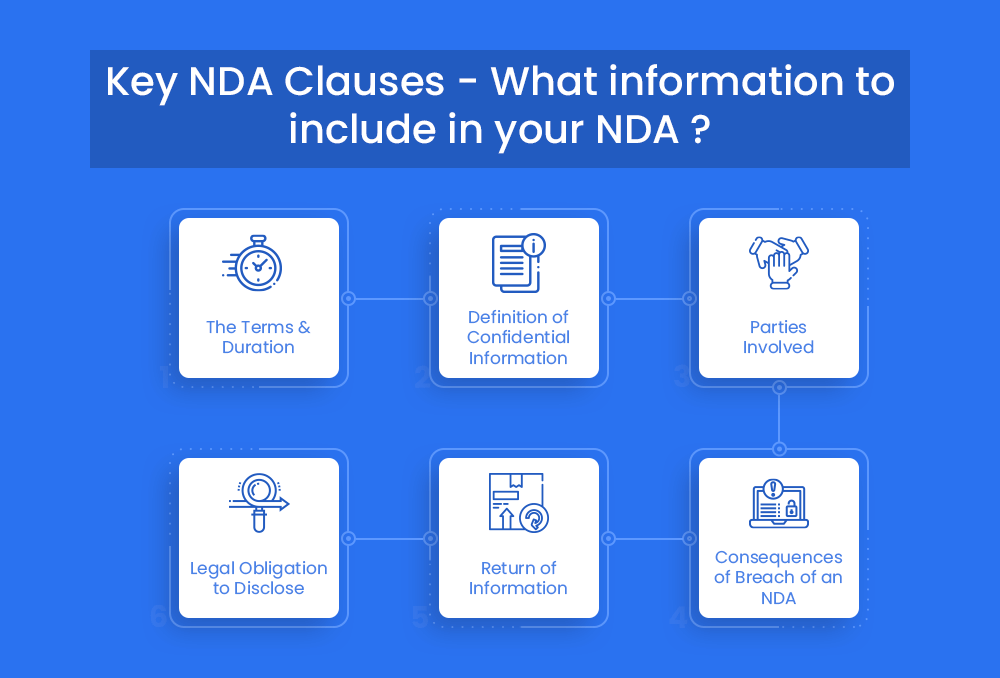
Clause #1 – The Terms and Duration
Every NDA needs to have a clearly defined timeframe. You should clearly state when the Non-Disclosure Agreement ends and how long the confidential information must remain confidential. Generally, there’s no time limit for such agreements, as each NDA is unique and tailored to the needs of both parties.
Some trade secrets can be crucial enough to be relevant for ten years down the line. For this reason, you would want to suggest extending the time period. Details may become irrelevant in 10-12 months; thus, they should be specified appropriately.
Pro Tip: Keep in mind that most jurisdictions won’t enforce unrealistic time limits.
Clause #2 – Definition of Confidential Information
How you define ‘confidential information is one of the most critical components of your NDA. This clause would be taken as the holy grail for determining what information is not to be disclosed. Companies should be thorough and clear in their specifications. They should make a list of all information and trade secrets that cannot be disclosed. Having a detailed list helps in easily pinpointing the sub-clause during a breach of confidentiality. This NDA clause acts as proof that the receiving party knew that certain information was confidential.
Clause #3 – Parties Involved
It is very important to get this NDA clause right. Whatever agreements, provisions, and clauses will be mentioned in the NDA will be for the two parties involved. Hence, it becomes very important for the drafter to clearly state the name of the discloser and recipient without any mistakes. You also need to account for third-party entities involved in the NDA process and have access to this sensitive information. For instance, the recipient would have their attorneys, accountants, and other professionals who might need to review the information. Any such third-party entities or professionals also need to be included in your Non-Disclosure Agreement.
Clause #4 – Legal Obligation to Disclose
You can be as thorough and tight with defining what information is confidential and the terms of your NDA as you like. However, at some point, you might be legally compelled to disclose the confidential information you agreed to keep confidential under such an agreement. This legal compulsion can come from government agencies, administrative entities, and other such bodies or via the courts.
The NDA should note that disclosing sensitive information in compliance with the law is not considered to be a breach or violation of the agreement by either party. You should only ask the recipient party for very important details related to any such obligations and consult them whenever such demands are made.
Clause #5 – Return of Information
Once the agreement gets over, the recipient party either needs to destroy the sensitive information or return it to the discloser. Your NDA should have a clause that describes how and when exactly this should occur. Deciding this will largely depend on the conditions of your relationship. There are so many communication and file-sharing mediums that will be used throughout the mobile app development project. It is nearly impossible to destroy or return all bits of information shared electronically. If that is the case, this clause can also include verbiage that prevents the recipient party from using the information in their normal course of business or sharing it in the future.
Clause #6 – Consequences of Breach of an NDA
It is very important to state the consequences that the recipient party will face if they breach confidentiality. It has to be specified in your contract. Generally, there are heavy financial penalties for such situations; however, you can also ask for indemnity of all losses suffered due to breach if that’s sufficient.
You can add more clauses to your NDA if you feel like they will bring more value and thoroughness to your NDA. You proofread, check your NDA for facts & follow other NDA best practices before finally publishing the final contract. An NDA for app development acts as a useful tool in outsourcing projects & helps both parties stay within specified parameters, thus preventing any legal or financial problems.
have a unique app Idea?
Hire Certified Developers To Build Robust Feature, Rich App And Websites.
Wrapping up!
Having a non-disclosure agreement for mobile app development will help ensure that your app idea remains protected to a certain extent when it’s in the development phase. This can help you better coordinate with the other party while avoiding conflicts to a greater extent.
Also Check:
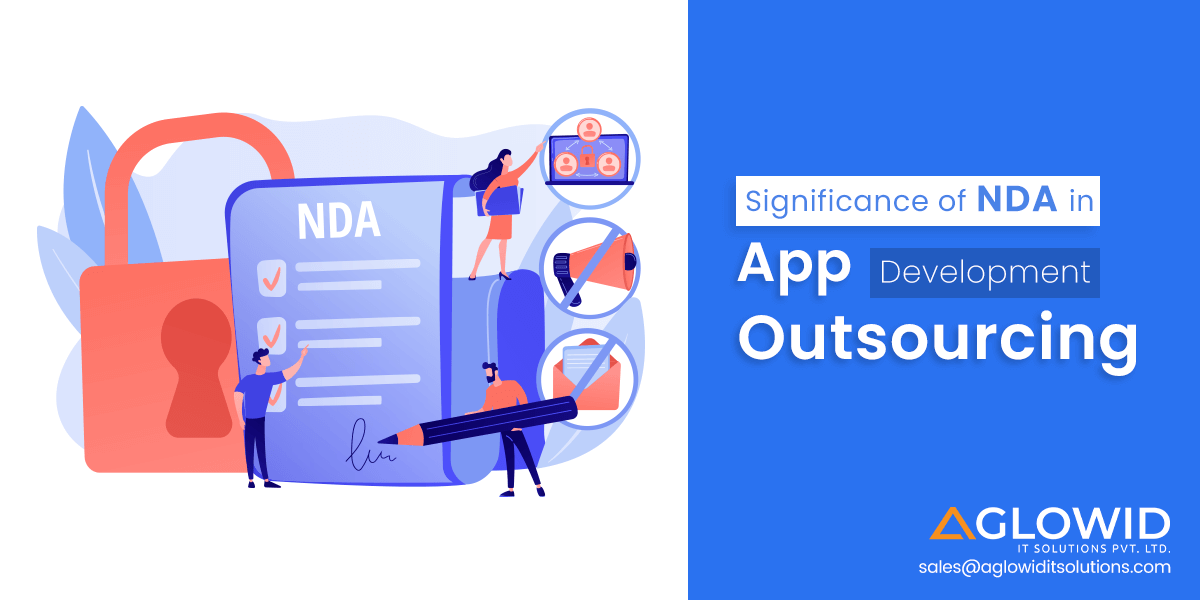

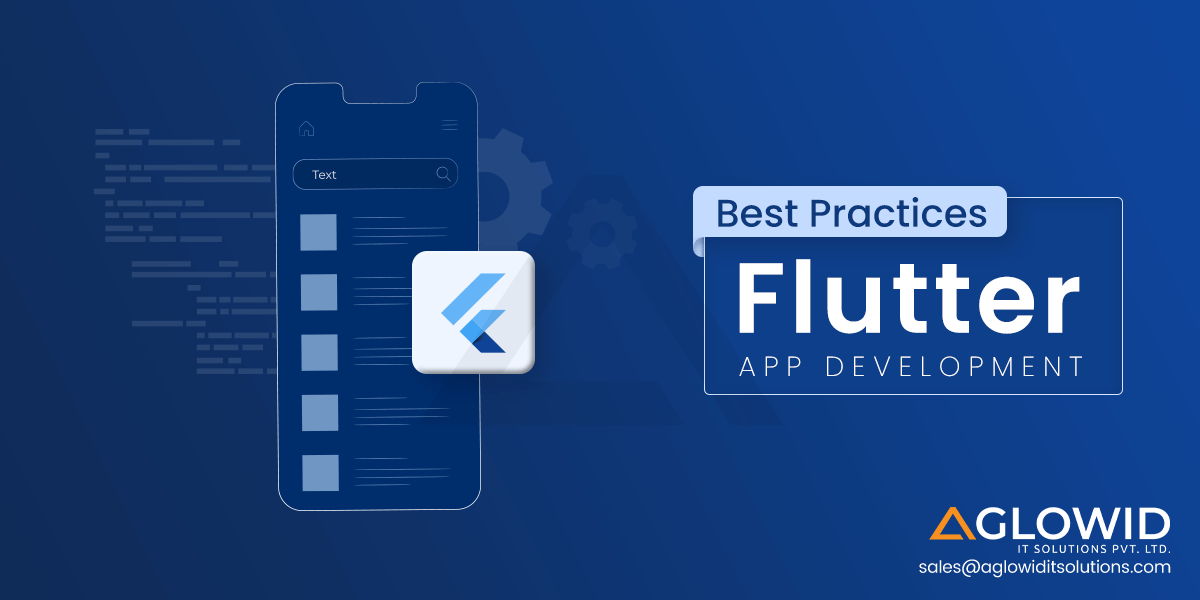
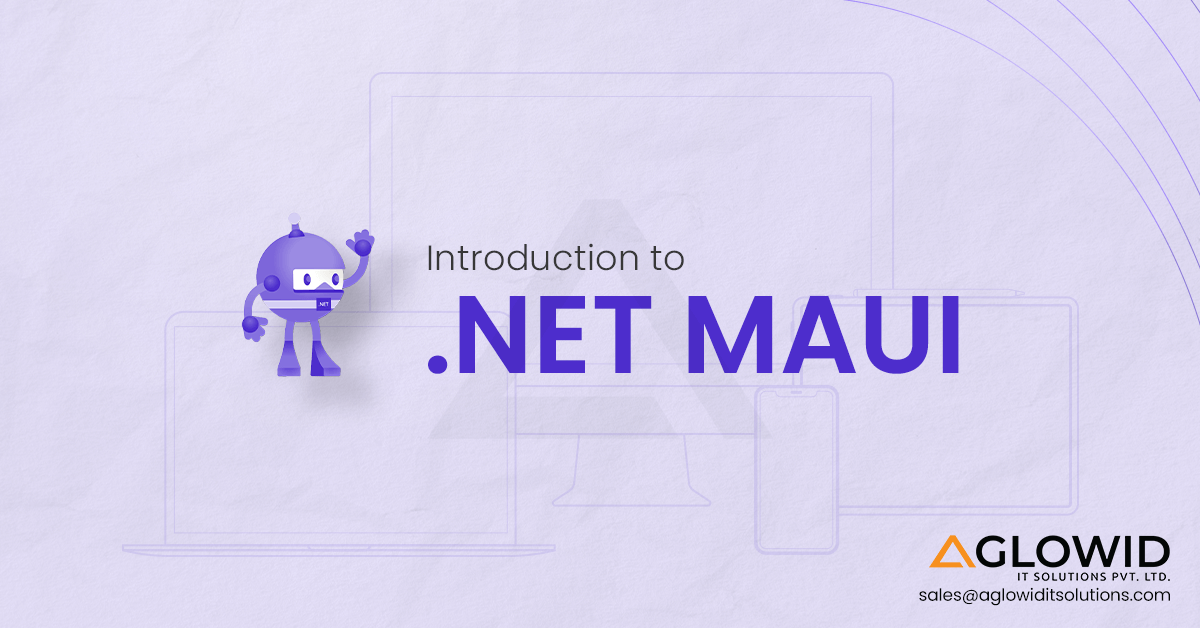

 Say
Say